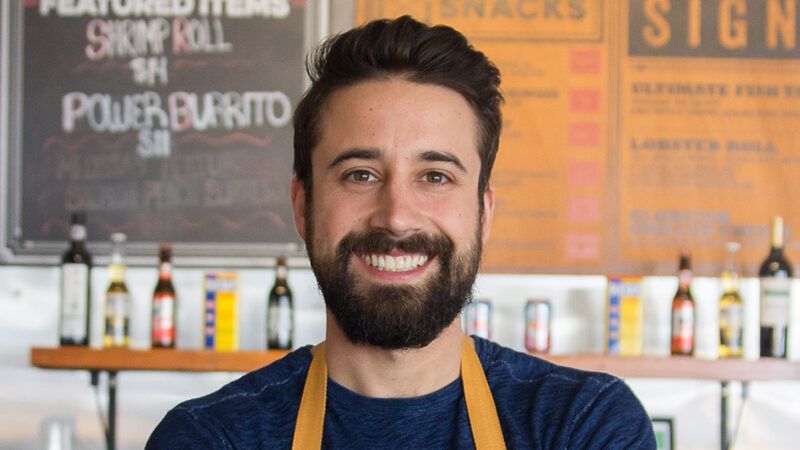Chef Andrew Gruel Survived COVID-19 and Gavin Newsom
What's it like to run a restaurant in California during the pandemic?

Andrew Gruel just might be the patron saint of restaurateurs, small business owners, and service workers during the pandemic. He's the founder and owner of Slapfish, a growing national fast-casual restaurant chain based in Huntington Beach, California, as well as a widely recognized culinary innovator and familiar face on the Food Network and other cooking channels.
Over the past year, Gruel has also gained prominence as an unabashed critic of arbitrary rules that put business owners like him at the beck and call of hypocritical politicians such as California Gov. Gavin Newsom (D). Most famously, in an inspired rant that went viral on social media last December, Gruel listed all the ways in which California's ban on outdoor dining made no scientific or economic sense before concluding, "I'm not an asshole. The governor is."
Reason's Nick Gillespie spoke to Gruel in April about what it's like to run a restaurant in California.
Q: What was it like to have outdoor dining shut down again this past fall even though it wasn't a vector of COVID-19 spread?
A: Here in Southern California and across the nation, you started to see a lot of investment in things like outdoor dining patios. You started to see restaurants effectively spill out into parking lots and the streets. And it was great, right? Going into the summertime, everybody was giving everyone else a high-five about this. Now go into fall, wintertime: Southern California is positioned to be the restaurant mecca by virtue of our weather. You started to see restaurants pick back up again.
Then California shut down outdoor dining with no data, no science. People had hired to be able to serve through the wintertime. It was the last week of November here in California. It was every restaurateur's nightmare to have to let go of the majority of their staff. So you've got hundreds of thousands of people now applying for unemployment benefits.
Q: Last summer, you said the enhanced federal and state unemployment benefits also made it hard for you to staff your restaurant. How so?
A: In the very beginning, when the government offered it, I think it was $600 on top of what the state was offering for unemployment. Here in California, it was about $1,100 a week. Initially we did lay everybody off, because we didn't know what was going to happen. As we started helping out with the community and building some business, our business came back, and we needed those employees back. So we started reaching out to everybody. A lot of people were like, "Look, I'm making $1,100 right now not working. I've got books I want to read. I've got classes I want to take online."
If I was 19 years old and I could make $1,500 as a server working 50 hours a week, or I could make $1,100 sitting at home, reading books, learning an instrument, heck, I would do it too.
Q: You caught a lot of heat for making that observation on Twitter.
A: Everybody's response to me was, "Well, you're not paying your employees enough. That's because you're a greedy business owner. Maybe you should pay them more." No, no, no, no. That's not the point. Like I said, even if it's $2,000 that they were making by working here versus $1,100, it's the fact that people are being paid a significant sum of money to not work.
Q: What did you think when you learned Newsom ate indoors at the esteemed French Laundry after imposing strict rules on indoor dining on Californians?
A: Watching the people setting the rules break their own rules is the most offensive thing that's come out of this entire pandemic.
Q: What do you think the long-term damage of COVID-19 business impacts will be to the food service industry?
A: I think that we don't know what the long-term damage is going to be yet, but it is my contention that we haven't seen the worst.
This interview has been condensed and edited for style and clarity. For a podcast version, subscribe to The Reason Interview With Nick Gillespie.


Show Comments (307)